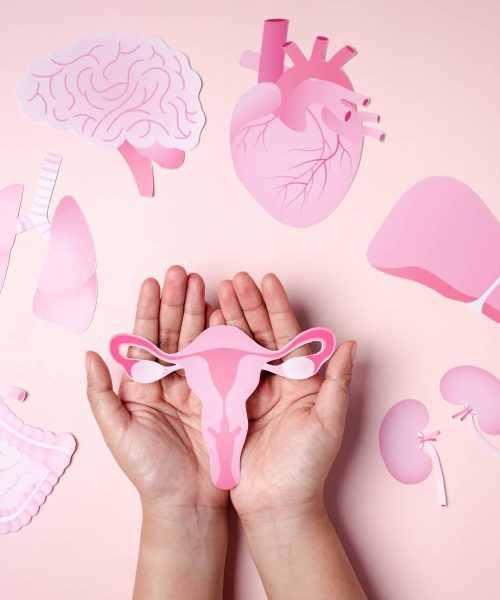Introduction
Miscarriage is a heartbreaking experience that affects many women worldwide. It is estimated that a significant number of pregnancies end in miscarriage, often before the woman even realizes she is pregnant, leaving the loss undetected. When a woman does become aware of a miscarriage, it can be emotionally traumatic, akin to losing a loved one. The attachment formed to the pregnancy makes the sadness associated with such a loss immensely challenging to overcome. In this article, we will explore the causes of miscarriage, shed light on the emotional impact, and provide guidance on coping with this difficult journey.
Understanding the Causes
Miscarriages occur for various reasons, and it is essential to recognize that the majority of these causes are beyond a person’s control. Defined as the unintentional loss of a pregnancy in the early stages, miscarriages can be attributed to environmental factors within the woman’s uterus or underlying health issues with the embryo or fetus. Unfortunately, once a miscarriage is underway, there is often little that can be done to prevent it due to the viability of the fetus or embryo. Common signs of an impending miscarriage include vaginal bleeding and cramping, prompting medical intervention to assess the likelihood of the pregnancy continuing.
Seeking Medical Evaluation
While not all instances of bleeding result in a miscarriage, it is crucial to consult a doctor when experiencing early pregnancy bleeding. Medical professionals typically perform a fetal heartbeat check, ultrasound examination, and possibly a blood test to measure HCG levels. Based on these assessments, doctors can determine if a miscarriage is imminent or if there is a possibility of the pregnancy progressing. In some cases, a doctor may classify the situation as a threatened abortion, signifying a potential miscarriage but not an inevitable one.
Types of Miscarriages
Miscarriages can manifest in different ways. Some may occur completely, without necessitating further medical intervention. However, there are cases where a miscarriage may occur partially, leading to a procedure known as dilation and curettage (D&C). During a D&C, the uterus is cleaned out to remove any remaining pregnancy tissue, allowing for proper healing and recovery.
Emotional Healing and Moving Forward
Following a miscarriage, it is crucial for a woman to take the time to heal emotionally and physically. Most healthcare professionals recommend waiting for at least one full menstrual cycle before attempting to conceive again. From an emotional standpoint, the loss of a pregnancy can profoundly impact the couple involved. Engaging in supportive activities such as reading books on miscarriage, seeking solace in conversations with others who have experienced similar losses, and allowing oneself to grieve are vital components of the healing process.
Coping Strategies
Dealing with the emotional aftermath of a miscarriage is an individual journey, and it is important to find coping mechanisms that work best for you. Here are some strategies that may help:
1. Seek Support
Reach out to your partner, close friends, or family members who can provide a compassionate ear and understanding. Participating in support groups or seeking professional counseling can also be beneficial.
2. Practice Self-Care
Take care of your physical and emotional well-being. Engage in activities that bring you comfort and joy, such as exercise, meditation, journaling, or engaging in creative outlets.
3. Communicate Openly
Express your feelings and thoughts with your partner. Open communication allows both of you to process the experience together, fostering mutual support and understanding.
4. Educate Yourself
Gain knowledge about miscarriage, its causes, and the potential for future successful pregnancies. Understanding the facts can help alleviate anxiety and provide a sense of empowerment.
5. Honor Your Grief
Allow yourself to grieve the loss fully. Each person grieves differently, so give yourself permission to experience and process your emotions in your own way and at your own pace. It is essential to remember that healing takes time.
6. Consider Professional Help
If you find it challenging to cope with the emotional impact of a miscarriage, do not hesitate to seek professional help. Therapists or counselors experienced in reproductive loss can provide guidance and support tailored to your specific needs.
Moving Forward with Hope
Experiencing a miscarriage can be a devastating and emotionally challenging journey. However, it is important to remember that one miscarriage does not dictate future outcomes. Many women who have suffered a miscarriage go on to have successful pregnancies and healthy babies. Taking time to heal, seeking support, and addressing any underlying medical concerns with your healthcare provider are essential steps toward moving forward with hope.
Conclusion
Miscarriage is a deeply personal and often difficult experience that affects many women. By understanding the causes and seeking appropriate medical evaluation, individuals can navigate this challenging journey with more clarity and resilience. It is important to remember that a miscarriage does not diminish the possibility of future successful pregnancies. Engaging in self-care, seeking support, and allowing oneself to grieve are essential components of the healing process. By acknowledging the emotional impact of miscarriage and offering support and compassion, we can foster a more empathetic and understanding environment for those who have suffered this loss.







